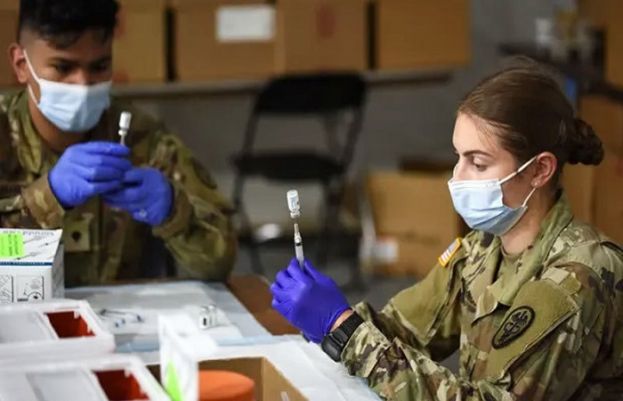
Following the news, Johnson & Johnson (J&J) said it was delaying the rollout of the vaccine to Europe, a week after regulators there said they were reviewing rare blood clots in four recipients of the shot in the United States.
The moves come after European regulators said earlier this month they had found a possible link between AstraZeneca’s COVID-19 vaccine and a similar rare blood clotting problem that led to a small number of deaths.
J&J’s single dose vaccine – most COVID-19 shots are delivered over two doses – and AstraZeneca’s low-cost vaccine are seen as vital tools in the fight against a pandemic that has claimed more than three million lives.
The White House said the pause would not have a “significant” impact on its plan to administer about three million shots per day and a total of 200 million shots before President Joe Biden’s 100th day in office.
The U.S. Food and Drug Administration (FDA) said one person had died from the rare blood clotting condition after taking the J&J vaccine and another was in a critical condition.
Immunology experts stressed the risk posed by the J&J vaccine appeared extremely low, and that the shot remained a valuable tool against the risks of COVID-19. However they acknowledged the need for health officials to proceed with caution to understand the best ways to mitigate any risk.
“Even if causally linked to the vaccine: 6 cases with about 7 million doses (lower than the risk of clots with oral contraceptives) is not something to panic about,” Dr. Amesh Adalja, an infectious disease expert at the Johns Hopkins Center for Health Security in Baltimore, said in an email.
“People are asking me if they should cancel their J&J vaccine appointments and I have told them not to but I know many will and this will stall progress in controlling the pandemic.”
FDA acting commissioner Janet Woodcock said it expected the pause to be a matter of days, and it was aimed at providing information to healthcare providers so that they can diagnose, treat and report such blood clots.
FDA official Peter Marks said that part of the reason for the pause was to warn doctors that administering the standard treatments for clots can cause tremendous harm, or be fatal.
No comments:
Post a Comment